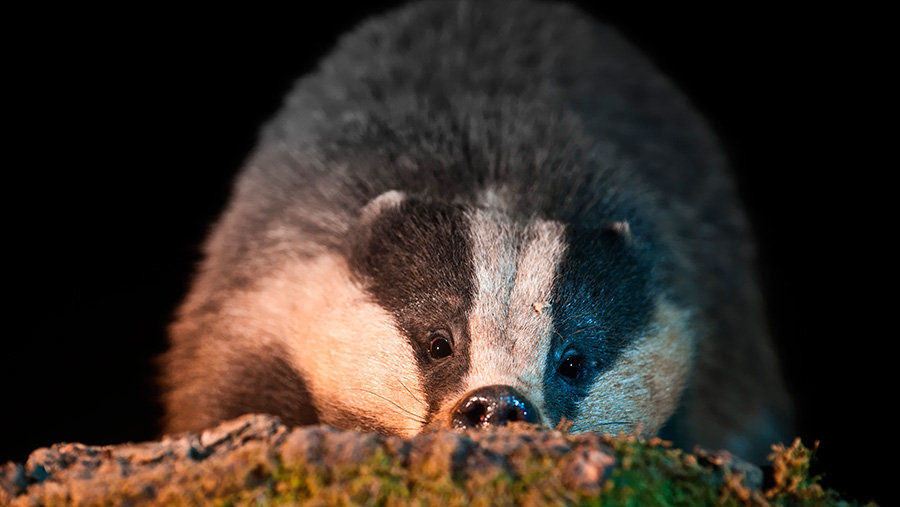Badger TB vaccination cost tops £800 a go
 © Richard Costin/FLPA/ImageBroker/Rex/Shutterstock
© Richard Costin/FLPA/ImageBroker/Rex/Shutterstock Wales’ bovine TB vaccination programme cost £825 a badger in 2015 – an increase of almost £120 an animal on the previous year.
In this, the fourth year of the programme, the Welsh government trapped fewer badgers in the north Pembrokeshire Intensive Action Area (IAA) than in 2014.
It vaccinated 1,118 badgers, the lowest number in any single year since the initiative got under way.
The numbers vaccinated has fallen year on year – in 2012 a total of 1,413 received the vaccine, in 2013, 1,347, and in 2014, 1,314.
See also: Welsh badger cull hopes ‘up in the air’ after election
A report on the fourth year revealed that the cost of the vaccination programme in 2015 was £922,012. Although this is slightly less than the £929,540 spent in 2014, the cost per badger is higher because fewer were vaccinated. The bulk of the expenditure – £625,111 – went on staff costs.
There is no sense in trying to control the disease when we don’t know the levels of disease in wildlife Brian Thomas, deputy president, Farmers’ Union of Wales
Last year, 651 landowners allowed vaccination teams access to their land. This amounted to 249sq km (86% of the Intensive Action Area) and contained 186 main badger setts.
‘Waste of money’
These landowners included livestock farmer Brian Thomas, who sits on the local working group of the Welsh Assembly’s Bovine TB Intensive Action Area.
He said the vaccination programme as a “waste of money”.
“We are just not seeing any results from this huge expenditure,” insisted Mr Thomas, deputy president of the Farmers’ Union of Wales (FUW).
He said figures released to the FUW showed that in the 12 months to December 2015 there were 188 new herd incidences of TB in Pembrokeshire as a whole and 2,304 cattle slaughtered compared with 146 new herd incidences and 1,268 cattle slaughtered in the previous year.
Mr Thomas called on the government to test badgers on every farm affected by TB.
“There is no sense in trying to control the disease when we don’t know the levels of disease in wildlife. If only 5% are infected, then perhaps a vaccine will improve the situation over time, but if 40% are infected then there is no hope of that happening.
“All we have had so far from this vaccination programme are statistics and figures, no improvements in disease levels.”
The IAA is approximately 288sq km and is primarily located in north Pembrokeshire but includes small parts of Ceredigion and Carmarthenshire.
For the second year, 16 landowners, covering 5.79sq km, denied government workers permission to access their land.
Vaccine supply
The cost of delivering badger vaccination in the IAA over five years was estimated to be in the region of £5,760,000 but the programme has now been suspended ahead of the final year because the supply of Bacillus Calmette–Guérin (BCG) vaccine has been interrupted.
The one company which produces the vaccine halted its supply to the government while it tackled a backlog of demand for human TB vaccines.
According to the report, it is unlikely that suppliers will be able to honour the government’s vaccine order for 2016.
“The deputy minster commissioned APHA (Animal and Plant Health Agency) to undertake modelling work to understand the potential for taking the IAA vaccination project forward,” the report stated.
“APHA’s conclusion is that despite not being able to complete the final year, four years of badger vaccination would achieve a reduction in prevalence of TB in badgers in the IAA.”
Figures released by Defra in March showed 8,103 cattle were slaughtered as a result of the disease in Wales in 2015 – a 27% increase on 2014 when 6,378 TB-infected cattle were removed.
